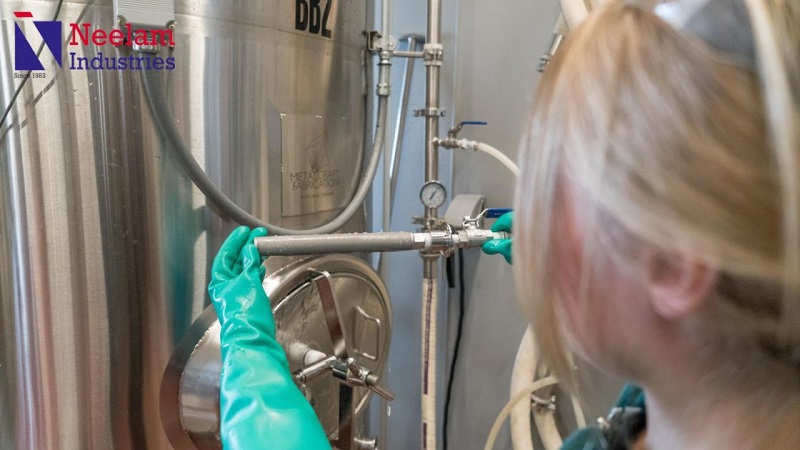If you are involved in large-scale liquid purification, you may get in touch with a multi column distillation plant manufacturer who is prepared to address your questions.
The heat exchanger technique used by the multi-column distillation water plant helps to lower the energy needed for the water system. When you have the top multi-column distillation plant manufacturer, they can purge water of pollutants and bacteria. When it comes to purifying water and rendering it sterile, the distillation plant system performs well. Compared to traditional procedures, it generates pyrogen-free water at a far lower setup and expense.
The multi-column distillation plant system is only operational following a machine quality check. It contributes to reducing the amount of energy needed to chill water. Utilizing vapor at high pressure and speed creates a centrifugal force that aids in removing pyrogenic material from the vapors.
Does the liquid need to be made purer by distillation?
Indeed, a large number of suppliers and manufacturers work in the multi-column distillation plant manufacturing industry. This particular type of plant is utilized in industry to help purify liquids through the process of distillation. The product consists of several series-arranged distillation columns, each of which functions as a distinct separation process to get the required degree of purity.
Principle
Distillation works on the fundamental tenet that different boiling points determine how liquid components separate.
Phases in Which the Distillation Plant System Operates
• The machine’s first column, which travels over broad baffles, produces steam. It facilitates the pyrogen and droplet separation process.
• The steam is then gathered into another column and sent to the overhead exchanger after passing via a narrow channel in the second column where it spins for greater purification and ultimately dislodges the vapor steam.
Principal column
The liquid combination is transferred into the plant’s first column, sometimes referred to as the primary or preheater column. The explosive component with a lower boiling point vaporizes and climbs to the top of the column when the mixture is heated. The vapor is collected as a more pure liquid and condensed on the main column. The gases that are non-condensable or less unstable are positioned at the top of the column as overheads and are typically transported for additional processing and disposal.
Remedial or secondary column
The next column, known as the rectification or secondary column, receives the condensed liquid from the primary column. To achieve a more precise parting, this column operates at greater temperatures and pressures. As it descends the support, the liquid continues in successive cycles of vaporization and strengthening.
The liquid components of increasing purity are progressively separated through a series of columns operating under various circumstances. The liquid mixture’s work and the required level of filtration determine how many columns are needed and how precisely they are designed.
Extensively used across several sectors
The main sectors that use distillation plants are oil refining, medicines, petrochemicals, and beverage manufacturing. They play a major role in the production of high-purity materials like ethanol, fuel-grade alcohol, pharmaceutical-grade water, and other specialty compounds.
For these plants to maximize the effectiveness of separation, precise temperature, pressure, and flow rate control are required. Occasionally, they integrate additional elements such as reflux systems, condensers, reboilers, heat exchangers, and control instrumentation to enhance efficiency and preserve the intended product quality.
These types of plants are essential to large-scale industrial processes that require liquid cleaning. They guarantee the creation of high-quality goods for various purposes by enabling the separation of various mixtures into their parts.

